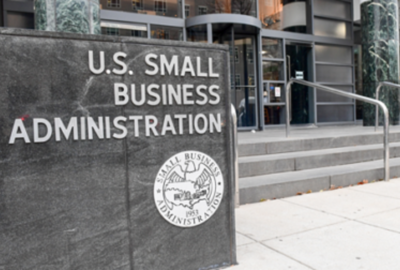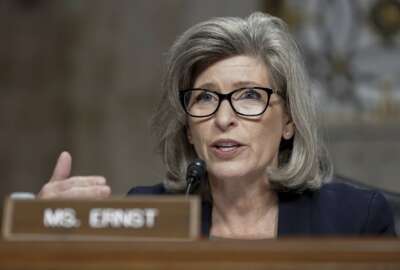An enduring small business contractor program appears headed to the sunset
The 8(a) program. It is a piece of federal jargon that has come to symbolize how the government helps small businesses get their fair share of contracting dollars.
The 8(a) program. It is a piece of federal jargon that has come to symbolize how the government helps small businesses get their fair share of contracting dollars. Now the underlying assumptions of the 8(a) program are under challenge in court. Could this be the end? For analysis, Federal Drive with Tom Temin turned to Managing Partner of Centre Law and Consulting, Barbara Kinosky.
Interview Transcript:
Tom Temin And I’m going to read back your own sentence and then you can translate it into English for us about what’s actually going on. A company called Ultima Services has, quote, asking the court to enjoin the government from exercising options to 8(a) contracts with contractors that received the rebuttable presumption of social disadvantage for admittance into the 8(a) program. So what’s going on?
Barbara Kinosky Well, Ultima is owned by a white woman who was ineligible well, I wouldn’t say ineligible could apply, but under a more rigorous criteria to the 8(a) program. So she’s back in court again asking that SBA and Department of Agriculture remove certain NAICS codes out of the 8(a) program, which are areas that her company pursues business opportunities in. So what has happened is and what’s very interesting, Tom, is I always assumed that all the 8(a) clients that I was working with, that it was a rebuttable presumption with emphasis on the word rebuttable. And I always presumed that somebody would be looking at that to ensure that applicants met both the social and economic. Economic is pretty binary. It’s just a math issue. But the social I thought was a little more complicated, and little did I know that SBA was not reading them at all.
Tom Temin Right. So to put it crudely, there could be black 8(a) owners that are wealthy and don’t have any disadvantage, but may be presumed to be disadvantaged based on one criterion. And there could be white companies that are presumed not to be disadvantaged who are very poor and trying to get their companies out of nothing, to get to establishment with federal contracts. I mean, that’s kind of a cartoonish way of putting it. But is that what’s going on here?
Barbara Kinosky I would say, well put. I can’t improve on that at all. That’s exactly what’s going on here.
Tom Temin Now, in applying to the Agriculture Department for certain NAICS code, certain industrial codes, this company Ultima, is not taking on the SBA, which administers the 8(a) program. In general, it sounds like they’re taking a very narrow approach to trying to undo 8(a) parts of it at a single department.
Barbara Kinosky Correct. But this is going to have, as you know, broader implications. And, in fact, SBA is already looking at how they’re going to interpret social disadvantage. It’s interesting because, as you know, when the 8(a) program was established, it was wide open. I mean, you could sell contracts, you could do whatever. You could get contracts of unlimited value. And now there has been internally, through regulatory means, a narrowing of the 8(a) program, but not through the court system like this has happened. The 8(a) program has, let’s say, narrowed down. I’m not going to say because there was a lot of incidences going on of selling contracts and things like that where, you know, they had to do something. So there’s been a continual narrowing of what the 8(a) program has been doing. You know, from the heyday to now. But this is really severe on the impact on the 8(a) program.
Tom Temin I first started following. They used to call it minority contracting many, many years ago in industry and 40, 45 years ago it was difficult to find contractors if you wanted to expand your business to people that were disadvantaged. But in that half century or so, since those types of programs really got started, there are minority owned companies with great technical, financial and managerial resources that can compete with the biggest and the best companies. Fair to say?
Barbara Kinosky Oh, yes, and they are. Absolutely.
Tom Temin Which means that the 8(a) program and other similar programs in industry in some sense achieve the goal of equalizing that playing field.
Barbara Kinosky Yes, really good point. The interesting observation I have, though, is that the 8(a) program has continually had studies on it, though, that the success rate of those that it should be helping, the ones that don’t have the resources in the 8(a) programs are not successful after the nine year program. There is a very low rate of success and continuation of those businesses.
Tom Temin All right. So there are still challenges. We’re speaking to Barbara Kinosky. She’s the managing partner of Centre Law and Consulting. And so this lawsuit at the Agriculture Department seeking to undo those so-called rebuttable characteristics. Why do you think that has much more profound effect potentially on the 8(a) program than earlier efforts and the continual narrowing it that you mentioned, that SBA itself is doing.
Barbara Kinosky Well. SBA is now going to have to look at each individual applicant and determine whether or not they’re qualified. I’ve known applicants that had a Ph.D. from Harvard University. And the question may arise of, wait a second, you have a successful company now and you got a Ph.D. from Harvard. So should you really be in the program at all? And I think they’re going to have to really examine all those applications now and make that determination.
Tom Temin All right. So your article, your blog, is entitled could “This Be the End of the 8(a) program?” What would a program do you think look like to replace it on the presumption that there are people that are disadvantaged of all stripes and that are deserving of an extra look for federal contracting?
Barbara Kinosky Well, I’m an interesting observation, too, is maybe that by letting all the companies in, there are companies that should never be in the program. Obviously, the ones that have a lot of advantages shouldn’t be the program, but also those who can succeed. Maybe they should not be in the program too. So it’s kind of interesting in that we’re now looking at a little bit of a slice and dice of who should be in. They’re not going to be reevaluating, I presume, those that have very little ability to succeed, but they are going to be evaluating the social disadvantage. But I think that the government likes to buy from those that it can buy from easily, particularly at year end. And, you know, there was a recent DoD solicitation where there were so many proposals that were submitted that they decided not to evaluate any of them because they couldn’t evaluate the 200 proposals. So I think that now we’re going to be looking at what’s next. And I think that what’s next is the Alaska Native programs, because they have no restrictions on them whatsoever. And the government can always give them a contract. And when they’re no longer small, they just add another one. So I think what’s going to happen is the 8(a) program is going to be less desirable than the ANC program.
Tom Temin Yeah, it’s almost like Animal Farm. There are some companies that are more disadvantaged than other companies, and so it goes and keeps subdividing further and further. But on that issue of their lack of success after exiting the 8(a) program, I guess the question is how does that compare to any other company of a similar size and maturity in its history and the success rate of companies in general that are that size that might not have been in 8(a) that we don’t really know?
Barbara Kinosky We don’t know that you’re right. But if you are getting some source contracts or you’re competing in a very limited pool for contracts, then after you’re out of that very limited competition area and into the full world of competition and you can’t survive, then it tells me maybe you shouldn’t have been in the business to begin with.
Tom Temin All right. So for those that are thriving, that are doing work for the government under the 8(a) program, what’s your advice to them now to make sure they don’t get rebutted, you know, out of the 8(a) program?
Barbara Kinosky I like that. Rebutted. It’s an action verb now, I would say. Well, SBA is issued guidance on submit your social disadvantage statement if you don’t already have one. And like I said, those companies that I represented, they already had one. I’m on the forefront of this. So I would say get that statement in right away and you’re going to have to make it look really good. And I’m not talking about creating a false narrative, but I am saying that it’s going to have to be I assume we don’t know what the guidance that the trading that the SBA has given its staff on evaluating these essays. I think it’s going to have to be very moving because one of the things that the plaintiff has asked for in the Tennessee case, Ultima, is to see all the narratives. And regarding the rebuttable presumption, there’s language in the regulations that says if somebody else could file an action against SBA and say that they don’t believe this company is qualified. Now, how you would be able to get that information or even know that they applied? I don’t see how anybody could contest that because the narratives aren’t public and the application process isn’t public.
Tom Temin All right. So that means there’s some FOIA going on.
Barbara Kinosky Yes, a lot. I’m assuming a whole lot.
Copyright © 2025 Federal News Network. All rights reserved. This website is not intended for users located within the European Economic Area.
Tom Temin is host of the Federal Drive and has been providing insight on federal technology and management issues for more than 30 years.
Follow @tteminWFED





